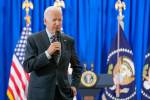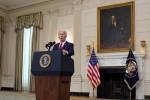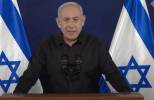Obama picks Nobel Prize winner to head Energy Department
WASHINGTON — Steven Chu, a Nobel laureate and one of the nation’s leading science advocates for combating global warming and promoting renewable energy, was announced today as President-elect Barack Obama’s choice to lead the Department of Energy.
Chu, 60, is director of the Lawrence Berkeley National Laboratory, where since 2004 he has focused the California institution on research into biofuels, energy efficiency and conservation, solar energy and other strategies to address climate change.
Obama’s preference for the respected physicist had been an open secret for a week, and was widely reported. The president-elect formally announced the appointment at a news conference in Chicago where he also introduced his picks to fill other key energy and environmental posts in his administration.
Obama said his choice of Chu “should send a signal to all that my administration will value science. We will make decisions based on facts and we understand the facts demand bold action.”
But some lawmakers privately question Chu’s lack of political experience to convert forward-thinking into legislation that can pass Congress and politics that can win support among bureaucrats.
Chu, who was born in St. Louis and grew up in Garden City, N.Y., shared the Nobel Prize in Physics in 1997 for developing methods to cool and trap atoms using lasers. He was 49.
Chu is also a professor of physics and molecular and cell biology at the University of California, Berkeley, and former head of the physics department at Stanford University.
He appeared in Las Vegas in August, where he spoke at the National Clean Energy Summit. He told the audience at the University of Nevada, Las Vegas that government research funds could help reduce the cost of photovoltaic cells and help create synthetic yeast to make diesel and jet fuel replacements from biomass.
In other speeches he has declared that coal “is my worst nightmare,” and he was not optimistic that light pollution “clean coal” can be perfected.
Less is known about Chu’s views on the Yucca Mountain Project, one of the major programs managed by DOE and one that Obama criticized during the presidential campaign.
Lynn Yarris, acting head of communications at Lawrence Berkeley National Laboratory, said he did not know if Chu has ever taken a public position specifically on the nuclear waste repository that DOE is trying to build at Yucca Mountain, 100 miles northwest of Las Vegas.
Along with several other major government science installations, the Lawrence Berkeley National Laboratory has participated in Yucca Mountain studies.
Project spokesman Allen Benson said the lab has been associated with Yucca about 20 years, performing investigations on how water travels through the ridge where nuclear waste would be stored.
Benson said “about three” lab employees still work on the project, not necessarily full time, with a current budget of about $1 million a year.
In a 2005 interview posted on a University of California, Berkeley Web site, Chu said nuclear power “absolutely” should be made a bigger part of the nation’s energy mix, where it now supplies 20 percent of electricity.
Chu also has said he supports recycling spent nuclear fuel to reduce its volumes and the toxic lifetimes of its elements.
In the same interview, he pointed out that nuclear fuel stored within canisters is supposed to remain contained within Yucca Mountain for 10,000 years. “But the current best estimates — and these are really estimates, the lab’s in fact — is that the metal casings will probably fail on a scale of 5,000 years, plus or minus 2,” he said.
“That’s still a long time,” Chu said. Dense rock is supposed to further retard the escape of radionuclides, “so that by the time it finally leaks down to the water table and gets out, the radioactivity will have mostly decayed,” he said.
In one possible clue to Chu’s stance on Yucca Mountain, Sen. Harry Reid, D-Nev., said he supported the nominee, and looked forward to confirming Dr. Chu as quickly as possible.
Reid aides said the senator spoke with Chu last week about “Yucca, climate change and the need to create jobs by developing renewable energy.”
“I am confident that Dr. Chu will transform the Department of Energy into a smart and progressive weapon against our addiction to oil, making our economy vastly more energy efficient and bringing about a safer future,” Reid said. “Dr. Chu also knows, like most Nevadans, that Yucca Mountain is not a viable solution for dumping and dealing with nuclear waste.”
Sen. John Ensign, R-Nev., said he had a favorable impression of Chu, including the nominee’s support for nuclear fuel recycling.
“That’s what I’ve been talking about for a long time,” Ensign said in an interview Thursday. On other issues, “He’s obviously very into renewables ... so I like that part of him,” Ensign said.
Rep. Shelley Berkley, D-Nev., said Obama “has made a stellar selection” in Chu.
Rep. Dean Heller, R-Nev., said “it remains to be seen” how the Obama administration will deal with Yucca Mountain, “and whether they will be willing to end the project once and for all.”
“Our nation needs a comprehensive energy policy that includes conservation, renewable energy, and developing our own natural resources,” Heller said in a statement. “It is my hope that the new secretary of Energy will work in a bipartisan manner to help solve our nation’s energy problems.”
Review-Journal writers Molly Ball and John Edwards contributed to this report. Contact Stephens Washington Bureau Chief Steve Tetreault at stetreault@stephensmedia.com or 202-783-1760.























